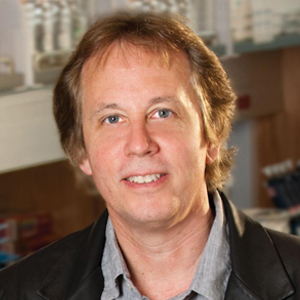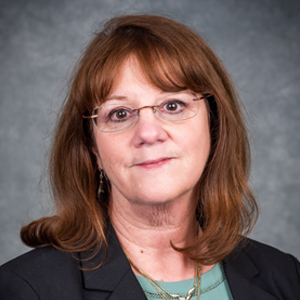Outside-in biology and disease
For life to exist, cells need to be able to sense and respond to their environment. To do so, cells of multicellular organisms produce highly specialized networks of proteins and glycans that include the extracellular matrix, or ECM. Glycans and ECM both provide and recognize extracellular signals and translate them into biological information. In turn, cells alter their phenotype in this bidirectional life process, which combines intrinsic template-dependent biology (nucleic acids and proteins) with template-independent metabolism (glycans and lipids). Glycosylation and the ECM are critical features of this bidirectional control of cell biology and disease. Glycans, produced by the enzymatic process of glycosylation, are an abundant and diverse repertoire of glycosidic linkages. The ECM is a complex network of secreted glycoproteins, proteoglycans and glycosaminoglycans that interact with cell receptors, ECM molecules, growth factors and enzymes.
This track will explore the activities and mechanisms by which these cell-derived components govern health and disease, emphasizing emerging links with cancer, immunity, inflammation and metabolism and including infectious and neurological diseases.
Keywords: glycosylation, ECM, cancer, inflammation, development, fibrosis, immunity, infection, neurobiology
Who should attend: anyone who is interested in understanding how cells function and respond to the environment through componentry that includes glycans and the ECM in the regulation of development, metabolism, inflammation and immunity and in the pathogenesis of multiple diseases
Theme song: “Built to Last” by the Grateful Dead.
This track is powered by proteins and sugars.
Talks
- Role of O-linked fucose-glucose disaccharide modification of thrombospondin type I repeats during protein folding and embryo development — Bernadette Holdener, Stony Brook University
- Fibrillin-Notch interactions in development and disease — Lynn Sakai, Oregon Health & Science University
- A genetic approach to glycomics in cancer — Henrik Clausen, University of Copenhagen
- TGF-beta regulation by the matricellular protein thrombospondin 1 — Joanne Murphy–Ullrich, University of Alabama at Birmingham
- Quieting mast cells for treatment of allergies — James Paulson, Scripps Research
- Decoding inflammatory signals from ECM glycans for the development of new immunotherapies — Kim Midwood, University of Oxford
- Glycosylation in a common pathogenic mechanism of colitis and sepsis — Jamey Marth, University of California, Santa Barbara and the SBP Discovery Discovery Institute, LaJolla
- Genomewide analysis of heparan sulfate assembly — Jeffrey Esko, University of California, San Diego
- Protective roles of O-GlcNAc in neurodegenerative diseases — David Vocadlo, Simon Frasier University
- The role of the O-GlcNAc transferase interactome in X-linked intellectual disability — Lance Wells, University of Georgia
- Role of ECM in the brain-gut connection — Fernando Gomez-Pinilla, University of California, Los Angeles
- The role of metabolism in modulating radiation fibrosis — Fei-Fei Liu, Princess Margaret Cancer Centre, Toronto
Enjoy reading ASBMB Today?
Become a member to receive the print edition four times a year and the digital edition monthly.
Learn moreFeatured jobs
from the ASBMB career center
Get the latest from ASBMB Today
Enter your email address, and we’ll send you a weekly email with recent articles, interviews and more.
Latest in Careers
Careers highlights or most popular articles

Cooking up science engagement, a fermentation experiment
By blending hands-on cooking with scientific experimentation, a study from a team at North Carolina State University demonstrates how culinary creation can spark scientific discovery and deepen public engagement with researchers.

Upcoming opportunities
ASBMB's PROLAB award helps graduate students and postdoctoral fellows spend up to six months in U.S. or Canadian labs.

From humble beginnings to unlocking lysosomal secrets
Monther Abu–Remaileh will receive the ASBMB’s 2026 Walter A. Shaw Young Investigator Award in Lipid Research at the ASBMB Annual Meeting, March 7-10 in Washington, D.C.

Chemistry meets biology to thwart parasites
Margaret Phillips will receive the Alice and C. C. Wang Award in Molecular Parasitology at the ASBMB Annual Meeting, March 7-10 in Washington, D.C.

Decoding how bacteria flip host’s molecular switches
Kim Orth will receive the Earl and Thressa Stadtman Distinguished Scientists Award at the ASBMB Annual Meeting, March 7–10, just outside of Washington, D.C.

Defining JNKs: Targets for drug discovery
Roger Davis will receive the Bert and Natalie Vallee Award in Biomedical Science at the ASBMB Annual Meeting, March 7–10, just outside of Washington, D.C.


